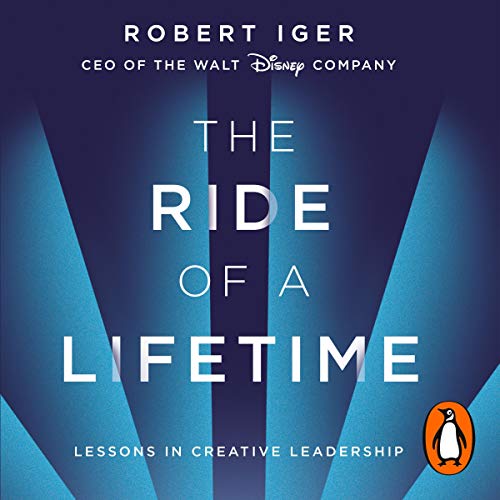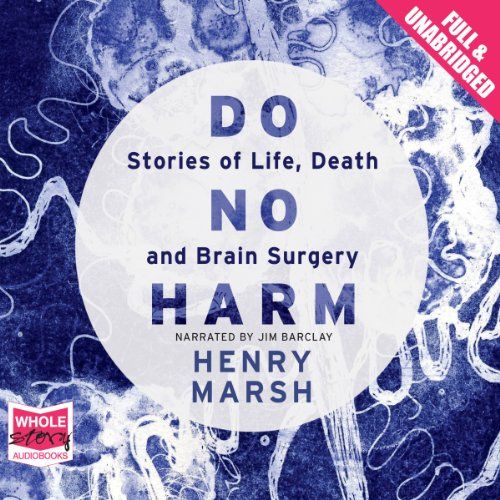So that, then, was 2020. Good riddance. One might imagine that the enforced downtime offered by the pandemic lockdowns would have afforded me the opportunity to read many more books than I did in 2019.
But a displeasing proportion of my evenings in 2020 were spent relentlessly doomscrolling Twitter, eager for the latest morsels of information about the pandemic, US election or (sigh) Brexit. Besides, most of my “reading” in 2019 was actually achieved by listening to Audible while commuting or at the gym, two activities which barely featured in my life this year.
Still, by year end it seems I have indeed read slightly more books (36) than I did last year (33), though on reviewing my list there are only a dozen that I feel compelled to tell you about:
The Top 5

The Ride of a Lifetime: Lessons in Creative Leadership from 15 Years as CEO of the Walt Disney Company by Robert Iger
My favourite book of the year is this autobiography by outgoing Disney CEO Bob Iger. One of Bill Gates’ regular book recommendations, I likely wouldn’t have considered reading it without his endorsement, as on the face of it this sounds like a typical airport business yawnfest. It’s not.
Rather than being about the dry, cold nature of business, earnings calls and margins, Iger’s book is full of warmth and humanity, with a particular focus on dealing with other people respectfully and understanding their motivations. This obvious genuine interest in other people allowed Iger to clinch stunning deals with Pixar, Lucasfilm, Marvel, and 20th Century Fox, whilst cultivating excellent relationships and friendships with the likes of Rupert Murdoch and Steve Jobs.

Airhead: The Imperfect Art of Making News by Emily Maitlis
Exiting my office one afternoon in summer, I overheard Jocelyn listening to this audiobook, specifically a portion describing Maitlis’ memorable interview with short-lived White House Communications Director Anthony (“The Mooch”) Scaramucci. I knew instantly that I had to listen to the whole book without delay.
In addition to that memorable moment with The Mooch, Maitlis also relates tales of meetings with Donald Trump, Theresa May, Simon Cowell, Bill Clinton, James Comey, Tony Blair, Gordon Ramsay and many more. Russell Brand’s ruminations on the addictive properties of Penguin biscuits will live long in my memory.
On television Maitlis has always come across as a super-smart yet down-to-earth big sister figure, and this compilation of anecdotes from years of reporting the stories of the day and interviewing those who shape our world has a similar quality.

Sorry I’m Late, I Didn’t Want To Come: An Introvert’s Year of Living Dangerously by Jessica Pan
As a fellow introvert, I naturally found many of Pan’s tales of self-enforced extroversion butt-clenchingly cringy. But there’s no denying that they were also hugely entertaining and perhaps, just perhaps, also offer evidence that occasionally saying “yes” and getting oneself “out there” might lead to a more fulfilling life.
Don’t get me wrong; I don’t plan to try stand up comedy or improv any time soon. But I might be open to the idea of making occasional smalltalk with my neighbours. Maybe.

Do No Harm: Stories of Life, Death and Brain Surgery by Henry Marsh
Why would I, who as a child hated the very thought of injections, and as a teenager fainted on multiple occasions in biology lessons, possibly want to read a book about brain surgery, of all things?
But this was recommended to me by my erstwhile colleague, good friend and surprise cousin John Conners, whose opinion I respect, so I gave it a go.
Pleasingly, I discovered that Marsh’s memoirs were less about the “gory details” of his chosen vocation (though naturally the topic did crop up), and more about his interactions with patients and their families, existential questions of life and death, and his run-ins with all aspect of our wonderful, bureaucratic, horribly over-stretched NHS.

The Art of Statistics: Learning from Data by David Spiegelhalter
Finally, an approachable book about statistics to take the baton from Darrell Huff’s 1954 classic How To Lie With Statistics.
The statistician that politicians love to quote has written a book that could easily become the canonical work for explaining the topic to the everyman. There is a surprising amount of warmth, opinion, and good humour between its pages.
If possible, get the hardback edition, or at the very least a physical copy. It is beautifully typeset and an object you’ll want to treasure.
The Best of the Rest
Erebus: The Story of a Ship by Michael Palin
In discussing with friends and colleagues the books that we have read this year, I found it curious how frequently the question is broached of whether listening to audiobooks “doesn’t count” or is somehow “cheating”. I don’t think so – I think it is a perfectly reasonable way of efficiently consuming books, perhaps doing so at the same time as some other activity such as commuting, exercise, or other hobbies.
There’s also something quite primeval about stories being handed down by the oral tradition from our forebears. I listened to Erebus during my commutes in those innocent early pre-lockdown weeks of the year, and found it soothing and absorbing to listen to Palin’s familiar dulcit Sheffield tones tell me about this 19th Century ship and its crews’ tales of derring-do. While Spiegelhalter’s statistical tome is a book that naturally succeeds in hardcopy format, Erebus certainly excels as an audiobook.
Everything Happens for a Reason and Other Lies I’ve Loved by Dr Kate Bowler
Blimey. Kate Bowler is a student of Prosperity theology, the belief that financial blessing and physical well-being are the will of God for believers. The mother of a young son, Bowler’s world was shaken by a stage IV colon cancer diagnosis.
This elegant, grateful, thoughtful book describes Bowler’s experiences coming to terms with that diagnosis, the reaction of her church, and what is truly important in life. Lots of food for thought here.
Ghost In The Wires: My Adventures as the World’s Most Wanted Hacker by Kevin Mitnick
Recommended to me by my techie colleague James Lavery, I expected that much of Mitnick’s book would be of a geeky nature, detailing the technical aspects of his exploits that led to his high-profile arrest and imprisonment for computer hacking. In fact, on listening to this book, it transpires that the most efficient technique at Mitnick’s disposal was not his technical skills but social engineering – the ability to convince other human
s to reveal information that they should not have done.
Time and again, in different states and in different ways, Mitnick used his self-confidence and relied on the natural goodwill of others to gain unlawful access to all manner of data and computer systems during the 1980s and 1990s. A thrilling ride.
The Life and Times of The Thunderbolt Kid: Travels Through My Childhood by Bill Bryson
During 2020 I read (or re-read) six of Bill Bryson’s books. This was partly a reaction to the uncertainties caused by the coronavirus pandemic. I appreciated hearing his light-hearted travel monologues – exploring the world in my mind while confined to our village.
This particular book, recommended by my colleague Mark D. Goldthorpe, takes the reader/listener back to Bryson’s childhood – midwestern America in the 1950s, a time of unparalleled happiness and bountifulness. A series of naïve early experiences relayed through the reflective prism of one well-travelled gentleman’s memory, it repeatedly brought a smile to my face during this difficult year.
Machines Like Me by Ian McEwan
The only fiction book on my list this year. Set in an alternative history in the 1980s, this sees a version of the UK that loses the Falklands War, but in which technology is more advanced, and artificially intelligent androids are available to own.
I found the storyline to be rather dark, yet captivating. It explores interesting philosophical questions, such as what it means to be human, and lingered long in my memory after I’d finished reading it.
Rebel Ideas: The Power of Diverse Thinking by Matthew Syed
A huge range of case studies explaining the crucial benefits to be had from cognitive diversity – listening to a wide range of voices and opinions from different backgrounds – and the potential tragedies that can unfold when we limit ourselves to working within homogeneous groups.
As someone who has spent the majority of his career working on lone tasks – i.e. programming computers – but has in recent years broadened into more of a team lead role, I found some of these insights very helpful in my working life. They have persuaded me of the value of increasingly working together – pair-programming or mobbing – to pool cognitive diversity and solve complex problems more efficiently.
Why We Sleep: The New Science of Sleep and Dreams by Matthew Walker
I found this somewhat dry, theoretical, and biological in nature in the earlier chapters. But as the book progressed and more applied examples were given it hammered home the wide-ranging benefits of getting a good night’s sleep.
Since reading this I’ve been tracking the amount of time I spend asleep, and have been increasingly aware of the correlation between being suitably rested over an extended period, and my physical and cognitive wellbeing. I no longer labour under the delusion that time spent asleep is wasted time, or begrudge my teenaged son sleeping in at the weekends!
Conclusion
Part-way through writing this blog post explaining why these books have appealed to me, I was surprised to note that there is an obvious theme running through many of these choice: People.
More than anything else in 2020, I have appreciated reading books which explore humanity, what it means to be human, and how to improve our interactions with other people:
- Iger’s advice on how to treat others with respect for the advancement of business interests.
- Maitlis’s trying to understand what makes her interviewees tick.
- Pan’s attempts to be less introverted and increase her interactions with other people.
- Rebel Ideas explaining the devastating effects of failing to solicit a diverse range of opinions.
- The ease with which Kevin Mitnick repeatedly used social engineering techniques on other people who are predisposed to be helpful.
- Henry Marsh opening up skulls and operating on the incredible delicate brains that make us who we are.
- And even the sole fiction book on my list this year – Machines Like Me – is a fascinating exploration of what makes us human.
I hope that as the roll-out of COVID-19 vaccines progresses, 2021 will bring more opportunities for us all to resume our interactions with each other, and practice doing so in more thoughtful and respectful ways.
